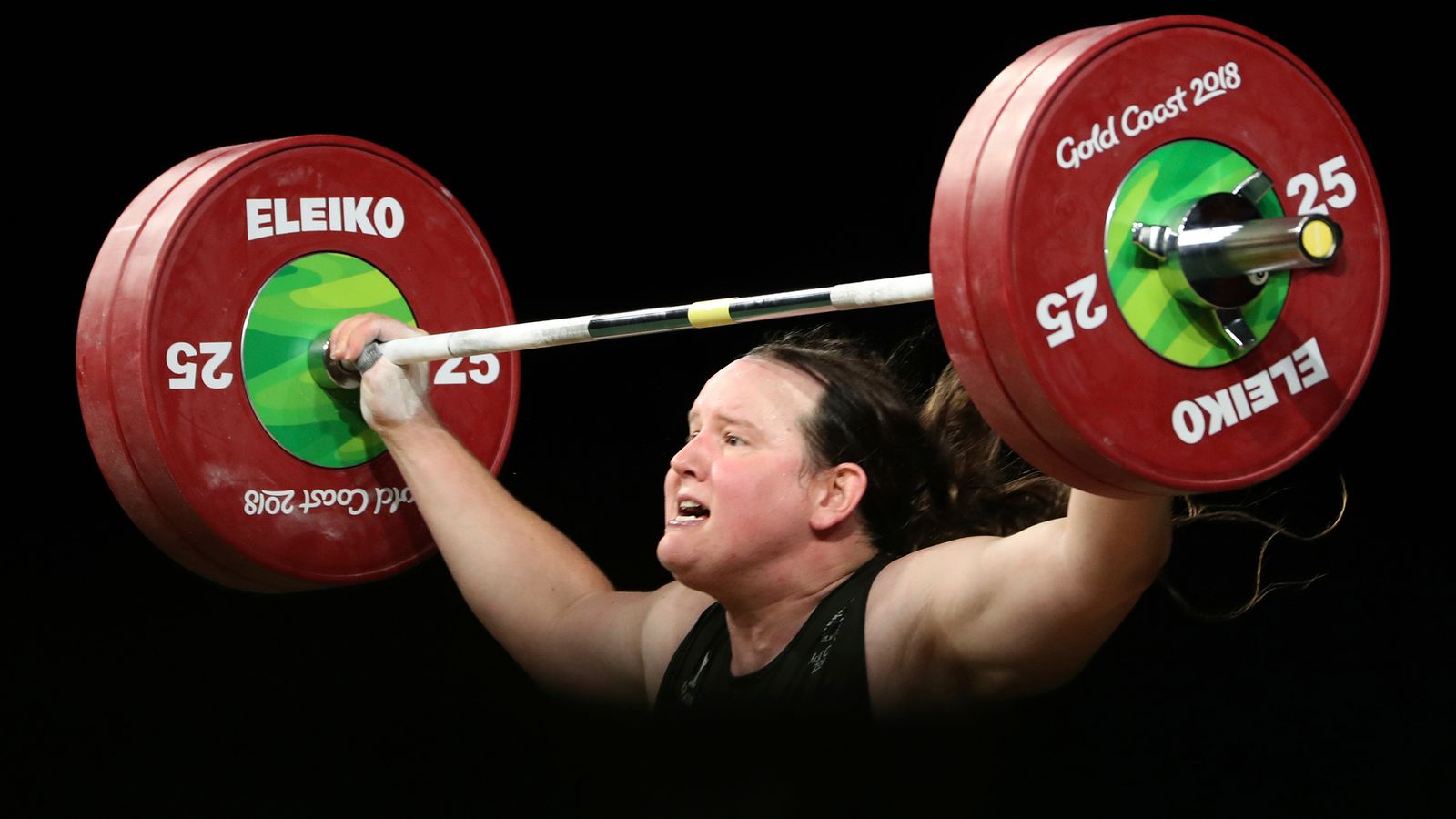New Zealand’s Laurel Hubbard will become the first transgender athlete to compete at the Olympic Games after being selected for her country’s weightlifting team.
The 43-year-old is among the five weightlifters confirmed on Monday in the Kiwis’ team for Tokyo 2021.
She lifted 185kg in two lifts on the way to qualifying in the women’s super-heavyweight division and will be the oldest weightlifter at the event.
Hubbard – who competed in men’s events before transitioning in 2012 – will be ranked fourth in the competition in the 87kg-and-over category, which will start on 2 August.
The weightlifter won silver at the 2017 World Championships and gold in the 2019 Pacific Games in Samoa, having sustained a broken arm at the 2018 Commonwealth Games in Australia – setting her career back.
Reacting to news of her selection for Tokyo, she said: “I am grateful and humbled by the kindness and support that has been given to me by so many New Zealanders.
“When I broke my arm at the Commonwealth Games three years ago, I was advised that my sporting career had likely reached its end.
“The last 18 months has shown us all that there is strength in kinship, in community, and in working together towards a common purpose.”
Hubbard set national records on the junior circuit, but did not compete at international level before transitioning.
Hubbard’s selection has generated some debate and controversy, but she has met all of the requirements set by the International Olympic Committee’s (IOC) regulations for trans athletes and fair competition.
Under the policy, trans athletes are eligible to compete in the female category by declaring their gender identity as female and demonstrating a total testosterone level below a specific measurement for at least 12 months prior to their first competition.
The IOC policy also states: “The overriding sporting objective is and remains the guarantee of fair competition.”
Despite passing the standard set by the IOC, Hubbard has faced backlash, with some in the weightlifting community arguing that the policy does not guarantee fair competition.
Belgium’s Anna Vanbellinghen, who will likely compete against Hubbard, has previously said the New Zealander’s presence would be “like a bad joke” for other women competitors.
She told insidethegames last month: “First off, I would like to stress that I fully support the transgender community, and that what I’m about to say doesn’t come from a place of rejection of this athlete’s identity.
“However, anyone that has trained weightlifting at a high level knows this to be true in their bones: this particular situation is unfair to the sport and to the athletes.”
Some scientists have also said the guidelines do little to mitigate the biological advantages of those who have gone through puberty as males, including bone and muscle density.
Please use Chrome browser for a more accessible video player
Subscribe to the Daily podcast on Apple Podcasts, Google Podcasts, Spotify, Spreaker
But advocates for transgender inclusion argue the process of transition decreases that advantage considerably – and that physical differences between athletes mean there is never a truly level playing field.
New Zealand Olympic Committee chief executive Kereyn Smith said: “We acknowledge that gender identity in sport is a highly sensitive and complex issue requiring a balance between human rights and fairness on the field of play.
“As the New Zealand Team, we have a strong culture of manaaki (hospitality) and inclusion and respect for all.
“We are committed to supporting all eligible New Zealand athletes and ensuring their mental and physical wellbeing, along with their high-performance needs, while preparing for and competing at the Olympic Games are met.”
Megan Signal, Kanah Andrews-Nahu, Cameron McTaggart and David Liti are the other athletes selected for New Zealand’s team in Tokyo, where protesters have continued to voice their opposition to the Games due to the ongoing coronavirus situation in Japan.






















